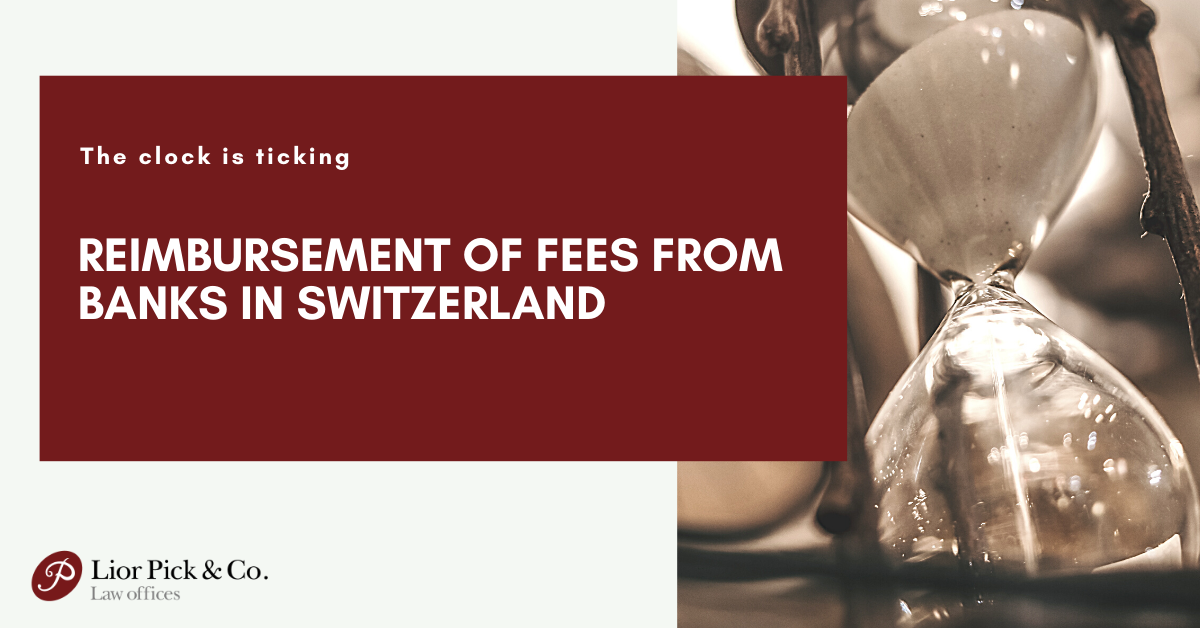In accordance with the provisions of section 75I of the Ordinance, a trusteeship will be classified as a “trusteeship created by foreign resident” in one of the two following cases:
A trusteeship in which all of the following occur:
a. At the time of its creation – all of its creators are foreign residents.
b. In the tax year – all of its creators are foreign residents.
A trusteeship all of whose creators and beneficiaries are foreign residents.
A trusteeship that fulfills the terms specified above shall be considered a “trusteeship created by foreign residents” whether it is “revocable” or “irrevocable”.
In a trusteeship created by foreign residents, the trustee’s assets and the trustee’s income shall be considered as the creator’s (the foreign resident’s) assets and income. Thus, such a trusteeship shall be considered a “foreign resident trusteeship” and the trustee’s assets shall be considered to be held by a foreign resident, and the trustee’s income as the income of an individual foreign resident.
When there are several creators who are residents of different states, the trustee’s assets will be considered to be held by individuals who are the residents of the creators’ residency states on a pro rata basis, and the trustee’s income will be considered to have been produced or yielded by individual residents of the said states, on a pro rata basis.
The relative distribution between the creators will be performed in according to the value of the assets vested in the trustee by each creator, as it was at the time of vesting.
As a rule, the rules determined for Israeli residents’ trusteeship shall apply to foreign resident trusteeships, mutatis mutandis, as follows:
Vesting in a trusteeship in the hands of an individual foreign resident – the awarding shall not be considered a “sale” for the purpose of Part E of the Ordinance.
Vesting in a trusteeship by a corporate foreign resident – the vesting will be considered a “sale” for the purpose of provisions of Part E of the Ordinance and the distribution of the asset as a dividend to its individual shareholders (like an Israeli residents trusteeship).
At the stage of producing profits in a trusteeship – considering that the trustee’s income is viewed as the foreign resident creator’s income, the tax shall apply to the trusteeship’s income only if they produced or yielded in Israel. The tax rate that shall apply (to proceeds as said) shall be the maximal tax rate stated in section 121 of the o for an individual including unique tax rates for specific revenues such as: interest, rent, etc.
At the stage of distributing the trusteeship’s assets: as a rule, the distribution of the trusteeship’s assets to the beneficiaries shall be taxable or exempt in accordance with Part E of the Ordinance, similar to the liability that would have applied if the asset had been directly transferred from the creator to the beneficiary. Hence, the distribution of assets that are not connected to Israel from the trusteeship to an Israeli resident shall not be taxable in Israel.
However when there are several creators in the trusteeship, the transfer from at least one of whom to the beneficiary would have been taxable had it been performed directly (similar to a transfer of an asset as a gift from an Israeli resident to a foreign resident) – this distribution shall be taxable in Israel.
Distribution to the beneficiaries after the end of the trusteeship – if, after the trusteeship has ended and its assets distributed, there are losses for tax purposes not yet setoff therein, and if they had been profits they would have been taxable in Israel – these losses will be considered the losses of the creator (the foreign resident). If there were several creators – the loss will be divided between them, prorated.
Do not forward and/or distribute that said in this circular to any entity other than the entity the circular is addressed to. Do not copy and/or photocopy and/or use this circular in any way without obtaining the undersigned’s permission in writing and in advance.
This circular is general. Do not use anything stated therein without receiving an opinion and/or professional particular legal advice according to unique circumstances.
With best regards,
Lior Pick and Co., Law Firm

In 2012, the Federal Supreme Court of Switzerland ruled that banks must reimburse their clients – among them many Israelis – who were billed […]


Force Majeure is a common clause in a contract. Many agreements include a Force Majeure clause which can, in some specific cases, cancel or […]

Virtual Currency Exchanges allows the trading and exchange of cryptocurrency (virtual currencies or utility tokens) for other cryptocurrencies or for fiat currency. Nevertheless, this […]

It is common knowledge that, as a part of the division of land estates, there are opportunities to plan taxation correctly. This is sometimes […]

“Even clients of the Swiss bank Credit Suisse received a preferred list of lawyers and accountants to perform ” voluntary disclosure ” procedures – […]

Facebook Twitter

On September the 7th, 2014, the Israeli Tax Authorities published a new Temporary Order for Voluntary Disclosure Requests authorized by the new Voluntary Disclosure […]

A. GENERAL The Tax Authorities are interested in encouraging tax-payers, dealers, individuals and functionaries in enterprises of whom violated the tax laws, to correct […]

As you know, after introducing of amendment #168 of 01.01.2007 into Israeli law on income taxation, the new immigrants and citizens who have returned […]